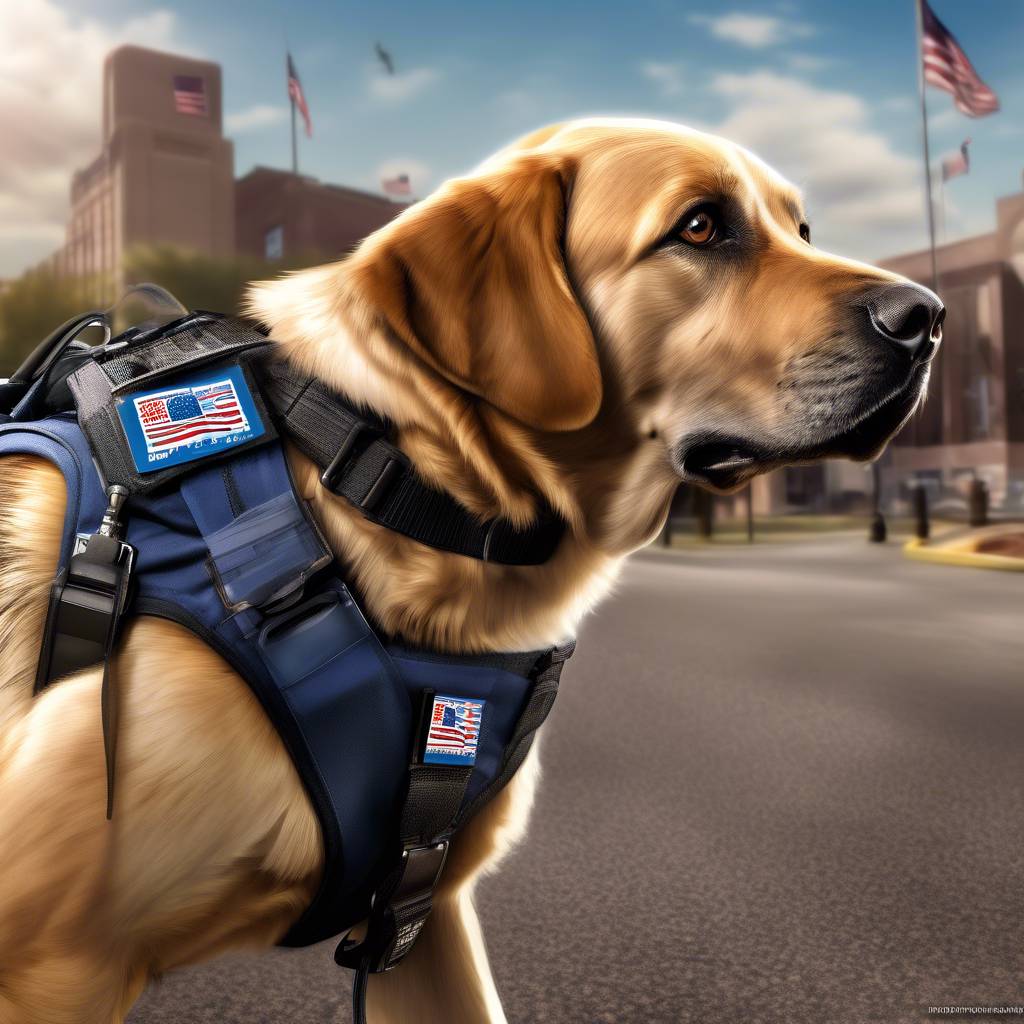Canine Companions, a service dog company, has developed new technology called CanineAlert, which enables trained dogs to perform tasks such as interrupting nightmares and reducing anxiety for individuals suffering from PTSD. The technology is designed to be integrated into a service dog’s training to help mitigate trauma-related nightmares, particularly among military veterans. Since receiving service dogs, veterans have reported improvements in their sleep patterns and overall quality of life, highlighting the effectiveness of the device in enhancing their well-being.
Psychiatric service dogs are specifically trained to assist individuals with mental health conditions such as PTSD. These dogs can be trained to provide a range of tasks, including interrupting anxiety, providing deep pressure to calm the individual, retrieving medication, and waking the individual from nightmares. In addition to these trained tasks, dogs are also able to provide nonjudgmental support and companionship, which can be therapeutic for individuals who have experienced trauma. The presence of a dog can offer comfort and emotional support to individuals with PTSD.
Service dogs provide veterans with a sense of independence and security that they may not have had previously. The dogs are trained to perform commands that can help veterans navigate public spaces with confidence, such as alerting them to someone approaching from behind and providing physical support when rising from a sitting position. These commands help veterans feel safer and more secure in their environments. K9s for Warriors, a service dog organization, primarily uses rescue dogs that meet specific standards for height, weight, and temperament to ensure they can perform the required tasks effectively.
Canine Companions’ patent for CanineAlert technology involves a monitoring device worn by the dog’s handler, which pairs with a device capable of delivering alerts to the service dog. The service dog is trained to recognize PTSD-related episodes in the handler and provide specific interventions to help mitigate the symptoms. The data collected by the monitoring devices can be shared with medical professionals for analysis and monitoring, allowing for adjustments to be made to the intervention strategies. By using this technology, the service dogs can significantly impact the quality of life of their veteran clients.
Research has shown that service dogs can have a range of benefits for veterans with PTSD, including lower symptoms of anxiety, depression, and PTSD and improved overall well-being. Service dogs can also help reduce social isolation, increase resilience to stress, and enhance life satisfaction for veterans. Additionally, having a service dog can lead to a reduction in the need for medications, as the presence of a dog can help regulate cortisol levels and improve mental health. Dogs can give veterans a sense of purpose and provide them with motivation to care for themselves and their well-being.
Overall, service dogs offer healing and hope to veterans by providing them with emotional support, companionship, and assistance with daily tasks. The presence of a service dog can help veterans feel more secure, reduce anxiety and PTSD symptoms, and improve overall quality of life. By integrating technology like CanineAlert into their training, service dogs can provide targeted interventions to help veterans manage PTSD-related symptoms and improve their well-being. Through the companionship and support of service dogs, veterans can regain a sense of independence and dignity, reducing their reliance on medications and improving their overall happiness and well-being.









